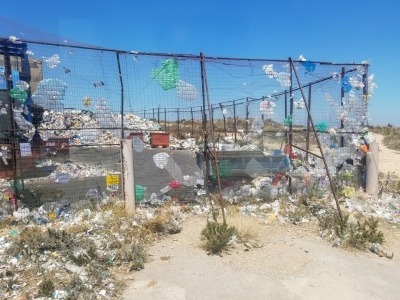Paper calls for a circular and resilient Covid-19 recovery in Latin America
Latin America and the Carribean (LAC) must rethink its economic model to recover from the long-term impact of the Covid-19 pandemic, according to a research paper released today (29 September) by Chatham House, The Royal Institute of International Affairs .
Chatham House’s report shows that the pandemic increases the need for circular economy principles to build a more resilient and sustainable economy, which tackles inequality, reduces poverty and provides a boost for skilled jobs.
 The report argues that dependence on resource exports, low manufacturing capacity and high levels of waste make the region particularly vulnerable to disruptions caused by the virus.
The report argues that dependence on resource exports, low manufacturing capacity and high levels of waste make the region particularly vulnerable to disruptions caused by the virus.
The amount of waste generated in LAC regions is expected to increase from 541,000 tonnes per day in 2014 to 670,000 tonnes per day by 2050. Currently over 90 per cent of this waste is either landfilled or burned, rather than being recycled.
Two of the major sectors the report focuses on are mining and the bioeconomy. With increasing global demand for lithium and other rare earth minerals, putting more emphasis on reusing and recycling electronics will help the demand go down.
The report proposes that policies should be introduced to follow product lifespans and make manufacturers liable for consumer waste.
In terms of damage to the economy, the report predicts a GDP loss of 7.2 per cent across LAC in 2020, the largest average shrinkage among developing economies globally.
It follows a coalition of global environment experts advising that a circular economy should play a key role in worldwide recovery from Covid-19.
“A circular economy model could transform Latin America’s economies, insulating them from their perilous position in the global economy and setting them on a path to resilient, sustainable development,” said paper author Patrick Schröder, senior research fellow at Chatham House.
“The environmental, economic and social benefits of keeping materials in use for as long as possible are already at the core of Europe’s Green New Deal - but the approach could pay off in spades in this resource-rich region, which has a huge waste management problem, and in which social inequality is stark.”
Chatham House suggests that including circularity principles and sustainability standards in LAC food and agriculture industries can help avoid trade-offs between economic, social and environmental targets.
Indeed, there are a number of businesses and social entrepreneurs in LAC that are successfully deploying the circular economy principles.
An example of this is Chilean plastics company Comberplast, which has used innovative technology to turn 500 tonnes of discarded plastic rope polluting Patagonia into pallets for use in agriculture.
Another is Lanas Trinidad, a Uruguayan wool company exporting more than $50 million worth of clothing to global markets. It uses rainwater to wash the wool, and then creates green electricity for its factory from the resultant effluent.
The Chilean government has had a dedicated circular economy unit since 2018, headed by Guillermo González. He said: “The circular economy is about systemic change and therefore requires a system approach. Like many leading countries, Chile is developing a national roadmap to transition to a circular economy over the next two decades.”
Manuel Albaladejo, a co-author and regional head for the United Nations Industrial Development Organisation, said: “The Covid-19 crisis offers the chance of a green recovery, and a greater chance of meeting the Sustainable Development Goals.
“But this won’t happen by accident. Latin American policymakers and international investors must seize the opportunity to support a different kind of economy through funding and policy reform. Short-term stimulus packages that prop up the existing economic model will leave the region similarly exposed in the future.”
The research paper urges other LAC governments to follow the lead of Chile, Colombia and Uruguay and develop circular economy transition plans, with fiscal incentives to drive a transition away from resource export dependency towards higher value creation within the region.
In other parts of the world,the transition to a circular economy has also been proposed as part of plans for recovery after the Covid-19 pandemic, with a UK report claiming that it could boost the UK economy by £75 billion and create half a million jobs.
The Committee on Climate Change has been calling on the UK Government to make the transition to a circular economy part of the Covid-19 recovery plan and raise awareness of climate change as a whole.
The EU’s recovery plan also places the circular economy at its heart and will combine both a €750-billion recovery investment and the Circular Economy Action Plan, which was released in March.









